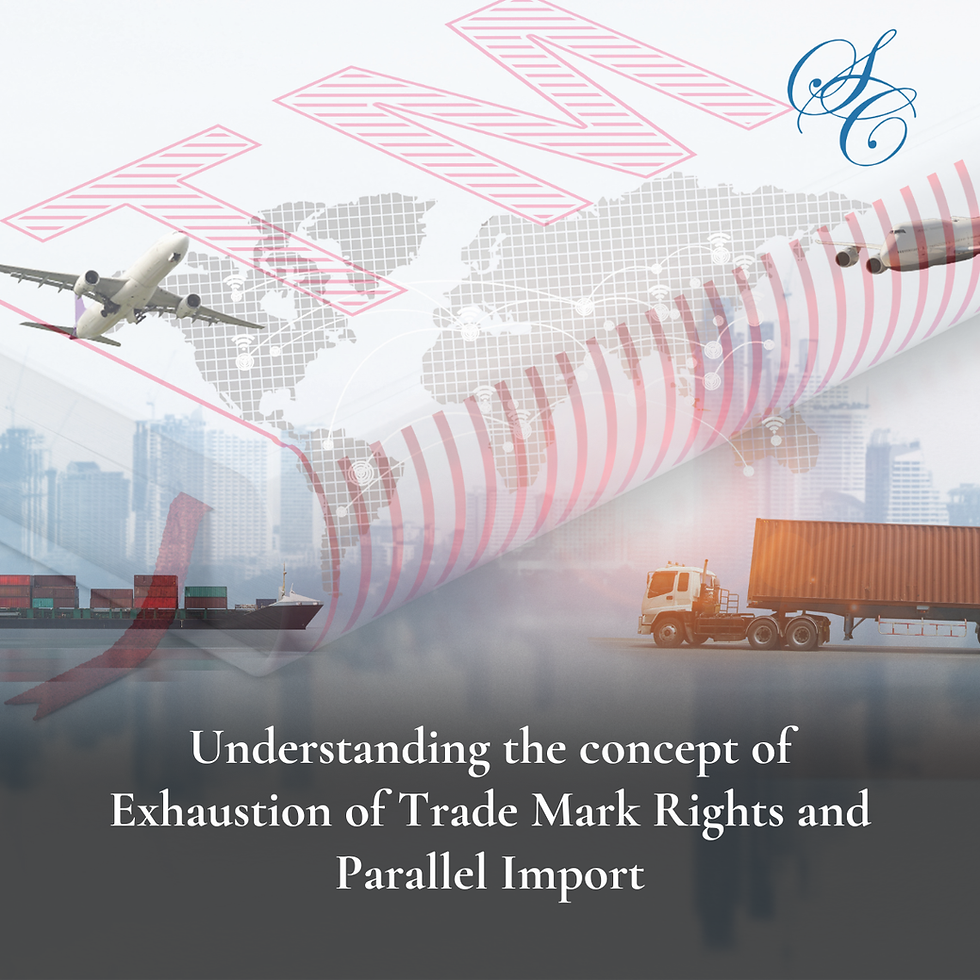Long Arm Jurisdiction in India
- Sarwajeet Singh
- May 29, 2020
- 2 min read
Our Associate Aishwarya Pande discusses “Long Arm Jurisdiction in India”
The recent decision of the Delhi High Court in the case of HT Media Ltd & Anr. v. Brainlink Ltd. & Ors. [CS(COMM)119/2020] [Read here: https://sc-ip.in/2020/05/15/anti-suit-injunctions/] has raised a question whether the Hon’ble Court might have exceeded its jurisdiction in passing an anti-suit injunction.
It is well-settled that long arm jurisdiction allows a court to obtain personal jurisdiction over a non-resident defendant if that defendant has a sufficient connection with the forum state. Given that there is no codified law in this respect, courts have held that they can exercise long arm jurisdiction if compelling circumstances exist and where grant of such an injunction is imperative to meet the ends of justice.
A leading precedent is Modi Entertainment Network v. WSG Cricket Pte Ltd [2007 (35) PTC 177 Del] (“Modi Entertainment Case”). In this case, the Supreme Court held that, while exercising its discretion to grant an anti-suit injunction against a non-resident defendant, the personal amenability of such a defendant to the court’s jurisdiction must be considered. In addition, the Supreme Court stated that, where the proceedings initiated in a foreign court are oppressive or vexatious, an exercise of the court’s personal jurisdiction is justified. In the case of (India TV) Independent News Service Pvt. Ltd. v. India Broadcast Live LLC & Ors., [2007 (35) PTC 177 Del], while examining the issue of passing off of a domain name, the Delhi High Court considered it appropriate to exercise its jurisdiction over a foreign defendant on the ground that the damage caused to the plaintiff’s goodwill and reputation will be a consequence of the fact that the defendant’s website is accessible in India and the defendant’s services could be availed in India.
Applying the above principles to the facts of the HT Media case, it does not appear that the Delhi High Court exceeded its jurisdiction in granting the anti-suit injunction in favor of the plaintiff. The Court opined that the grant of anti-suit injunction in this case was warranted because the damage caused to the plaintiff’s reputation in India was a direct consequence of defendant’s cybersquatting activity, and the suit filed by the defendant before the US District Court was vexatious and caused unnecessary hardship to the plaintiff. Having said that, it would be interesting to see the defense entered by the defendant in the upcoming trial.




Comments